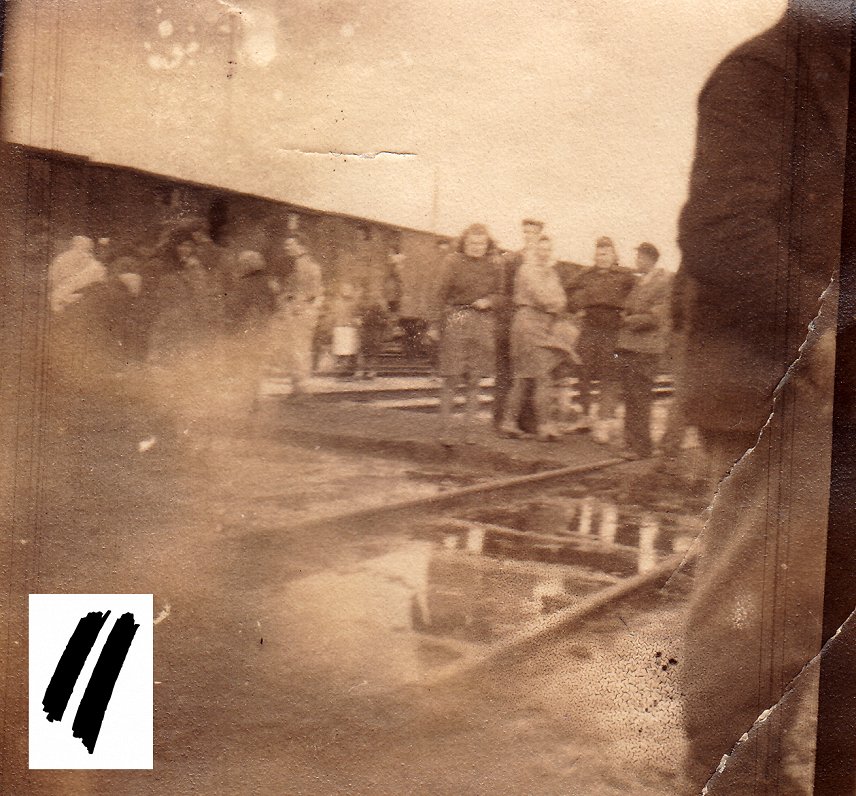42,000 Latvians were hauled off in cattle trucks 70 years ago and the date is now designated as Communist Genocide Memorial Day, with flowers laid at many of the rail stations and yards used for the deportations.
Similar atrocities against the local populations were also committed in Estonia and Lithuania, where commemorations are also due to take place.
Two major waves of mass deportations were carried out in Latvia: during the first Soviet occupation in 1941, and then again in 1949, during the second occupation, though smaller-scale deportations to the Gulag took place at other times as well.
As well as being crimes against humanity, the deportations deprived Latvia of many of its most capable citizens, and created shortages in the labor force, which were made up by immigrants from other parts of the Soviet Union as part of a wider program of Russification.
The deportations also created an entire generation of Latvians born in Siberia, who today are known as the 'Children of Siberia'.
"Though not outright genocide, the deportations created conditions that set Latvia and its people on a course of losing its cultural heritage and eventually its national identity as well," says an official account of the deportations by the Museum of the Occupation of Latvia:
"Between 25 March and 28 March 42,133 people, or more than 2% of the pre-war population of Latvia, were deported from Latvia to places of "special settlement" (mainly in the districts of Krasnoyarsk, Amur, Irkustsk, Omsk, Tomsk and Novosibirsk). Among these were more than 10,990 children and youths under 16. Women and children under 16 constituted 73% of the deportees. Altogether 30,620 families and 94,799 people were deported from the three Baltic States."
A longer account of the Soviet Union's appalling actions in this regard is available in this account.
Many officials and members of the public provided reminders of the day's significance on social media, including Latvia's ambassador to the Russian Federation, Māris Riekstiņš.
OTD 70 years ago the operation “Priboi” (“Coastal Surf”) started. Labeled as “enemies of the people” by Stalin regime, more than 90 000 people from #Latvia, #Lithuania and #Estonia were deported to Siberia, many of them women and children.#NeverForget pic.twitter.com/Z4R44TpZRT
— Māris Riekstiņš (@Riekstins__M) March 25, 2019
Foreign Minister Edgars Rinkēvičs stressed the importance of continuing to remind the world about such atrocities.
Today Baltic states commemorate another sad Anniversary: 70 years ago Stalin and his henchmen deported tens of thousands innocent men, women and children to Siberia, where many perished. We keep reminding to the world about crimes against humanity committed by the Soviet regime
— Edgars Rinkēvičs (@edgarsrinkevics) March 25, 2019
President Raimonds Vējonis also noted the fateful date on social media, saying it provided a reminder that "there can be no compromise with evil."
Šodien pieminam komunistiskā genocīda upurus. Tās nav tikai zināšanas par ??vēstures baisākajām lappusēm. Attieksme pret politiskām represijām raksturo sabiedrības morālos, politiskos orientierus. Tas ir atgādinājums mums, ka ar ļaunumu nevar būt kompromisi - @Vejonis pic.twitter.com/AIJS3Rhnsb
— Valsts prezidents (@Rigas_pils) March 25, 2019
Later in the day, Vējonis took part in the annual commemoration ceremony at the Freedom Monument in central Rīga. In a nuanced speech, he noted that Latvians were not only victims that day but that some also helped to carry out the orders from Moscow.
"Soviet power and the Party gave the orders, but the inhabitants of Latvia, including Latvians, were those who carried out the orders: Party members, Komsomol, KGB staff. Those who found and took people, those who acted as guards. Also those who were silent. This failing is part of our nation's heritage because the machinery of power is always driven by man."
Valsts prezidents @Vejonis piedalās ziedu nolikšanas ceremonijā pie Brīvības pieminekļa Komunistiskā genocīda upuru piemiņas dienā https://t.co/mkyD8CamNm pic.twitter.com/h9Ae3VCldP
— Valsts prezidents (@Rigas_pils) March 25, 2019
But he also conjured up the memory of those who had done their best to thwart Stalin's cruel plan.
"It is even more important to highlight those rare people who, from the darkness of the past, were willing and able to save someone else. The people who risked everything at night, hurrying to warn those on the lists or neighbors so that they would not fall victim to Soviet terror. These are the heroes we still owe," said Vējonis.


























